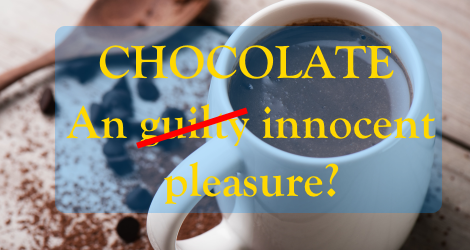Repairing damaged hearts - first step to rejuvenation
If you can repair damage from heart attacks, why can't we repair heart damage from ageing?
Join the club for FREE to access the whole archive and other member benefits.
Access to good health care and economic and social reasons are important contributing factors to longevity, but as far as food and lifestyle go, what is the secret of a long life? In an effort to unlock the secrets to a long and healthy life, researchers have studied the dietary habits of communities that have a low incidence of big killers such as heart disease and cancer.
Harvard University conducted a 20-year study of Kuna natives, residents of the San Blas islands off the coast of Panama. The incidence of high blood pressure and heart disease in this community was found to be 9 in every 100,000 people compared to 83 in every 100,000 among their mainland counterparts. The islanders' robust hearts and healthy circulation was linked to their drinking up to five cups of cocoa daily.

When it comes to lifespan, there are hundreds of foods that have attracted scientific interest, but the cacao bean invariably features on every list of anti-aging foods. While the medicinal and ritualistic use of chocolate dates back several centuries, modern scientific studies have repeatedly shown the beneficial effects of cocoa flavanols on health.
The cacao bean contains substances called polyphenols, a subtype of which is called flavanols. Flavanols and antioxidants found within the cacao seed are associated with a reduced risk of cancer, better circulation, and improved immunity, all of which aid a long and healthy life. These chemicals also combat the free radicals that are associated with cancer and premature aging.
High blood pressure is the primary or contributing cause of 7.5 million deaths worldwide. Flavanols lower blood pressure by improving the elasticity of blood vessels and helping to optimize circulation. Although flavanols are present in other foods such as tea and grapes (red wine is often associated with longevity), the bioavailability of these molecules has been found to be the maximum from cacao seeds.
All chocolates are not created equal. Chocolate is calorie-dense, and to reap the maximum anti-aging benefit of this super-food, it is important to eat the right one. Dark chocolate has a high cocoa content, a minimum of 35%, and packs the healthiest punch. Milk chocolate is fat-rich in light of its whole milk content and contains four times less flavanols and antioxidants. White chocolate is the least beneficial of all with high sugar content and zero cocoa. The healthiest chocolate is, therefore, dark chocolate with 70% cocoa.
Standard manufacturing can destroy many of the flavonoids too. One manufacturer has developed a process to retain a higher proportion, claiming their cocoa powder contains 8.3% in comparison to only 0.5-1.5% in the average powder.
Anxiety and depression are the most common mental health disorders afflicting human beings. They are the leading causes or contributors to early death from suicide and heart disease and can reduce life expectancy by 10-20 years, which is more than that associated with heavy smoking.
How does chocolate affect mental health? Dark chocolate has proven mood-boosting effects. The circulatory benefits of flavanols improve blood flow to the brain. This boosts memory and focus and reduces stress. Improved brain circulation has also been shown to prevent premature mental decline in seniors.
In addition to circulation, the feel-good effect of chocolate comes from its high endorphin content, the same chemical that is associated with the euphoria of a runner's high. Cocoa powder contains antioxidant molecules and flavanoids in the form of epicatechin which has several beneficial effects on the human brain. Dark chocolate is packed with so-called happiness and bliss molecules such as tryptophan, anandamide, and phenylethylamine, chemicals that create a positive mood. Also, high magnesium content of chocolate is responsible for improving focus and mood, promoting sleep, and combating stress.
Evidence suggests that chocolate has proven health benefits and anti-aging effects. Because chocolate is calorie dense, it is essential to choose wisely and eat it in moderation. Dark chocolate is best, in combination with an overall healthy diet and lifestyle. If you dream of being a centenarian and blowing out a hundred candles on your birthday cake, a piece or two of 70% dark chocolate at bedtime may be just what the doctor ordered.
References:
http://news.harvard.edu/gazette/story/2007/02/cocoa-shows-promise-as-next-wonder-drug/
http://www.ncbi.nlm.nih.gov/pmc/articles/PMC2790109/
https://www.ucsf.edu/news/2004/06/5175/small-daily-doses-flavonoid-rich-chocolate-improve-blood-vessel-function
http://www.ncbi.nlm.nih.gov/pubmed/18296356
http://www.webmd.com/diet/20040601/dark-chocolate-day-keeps-doctor-away
http://www.ox.ac.uk/news/2014-05-23-many-mental-illnesses-reduce-life-expectancy-more-heavy-smoking-0
http://www.ncbi.nlm.nih.gov/pmc/articles/PMC3575938/
https://www.psychologytoday.com/articles/200302/chocolate-life
http://www.ncbi.nlm.nih.gov/pubmed/11976402
Click on resource name for more details.
Public research university that is part of the University of California system and dedicated entirely to health science
New UK Alcohol Guidelines - Are you feeling lucky?
Daily weight fluctuations… or "I sh!t a pound"!
If you can repair damage from heart attacks, why can't we repair heart damage from ageing?
Using the blood of younger mice to reverse the signs of aging in older mice